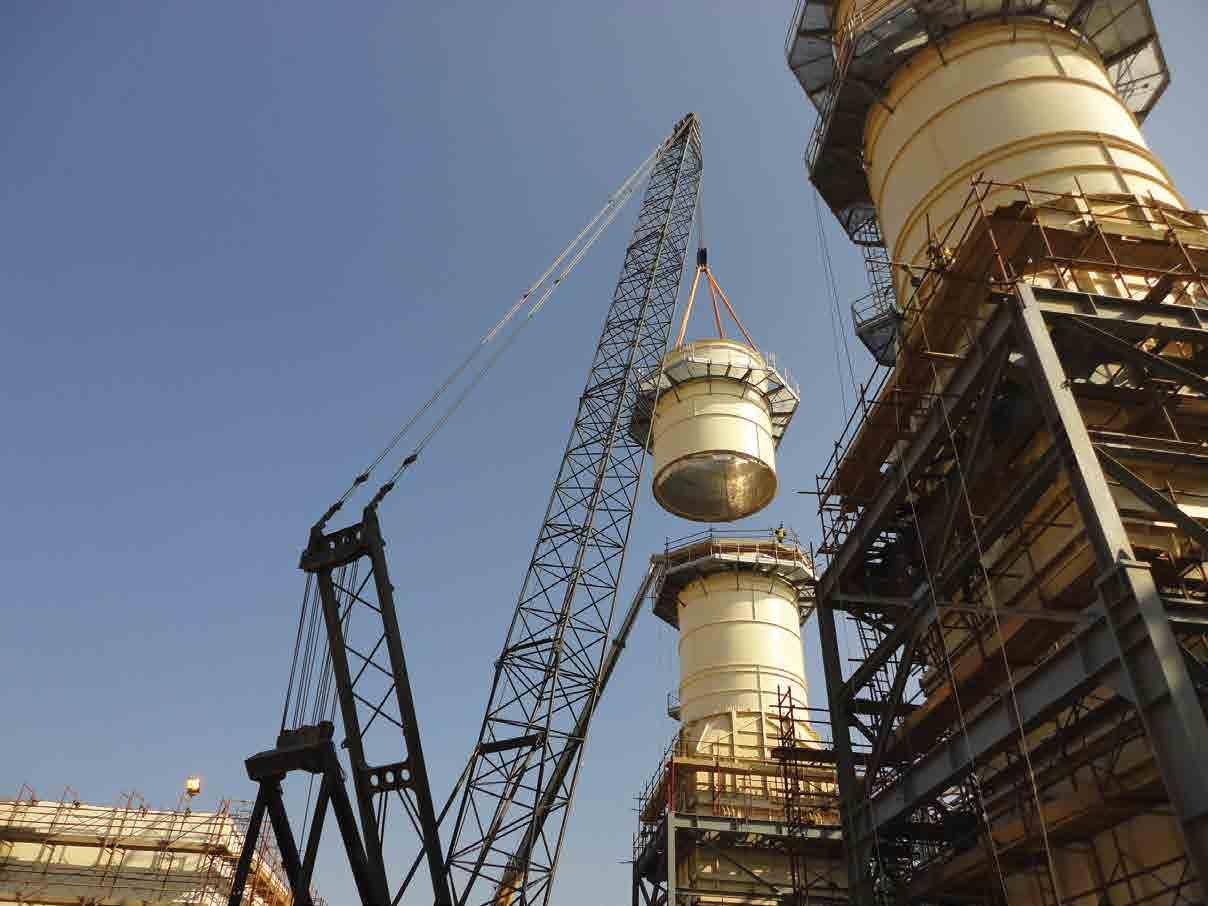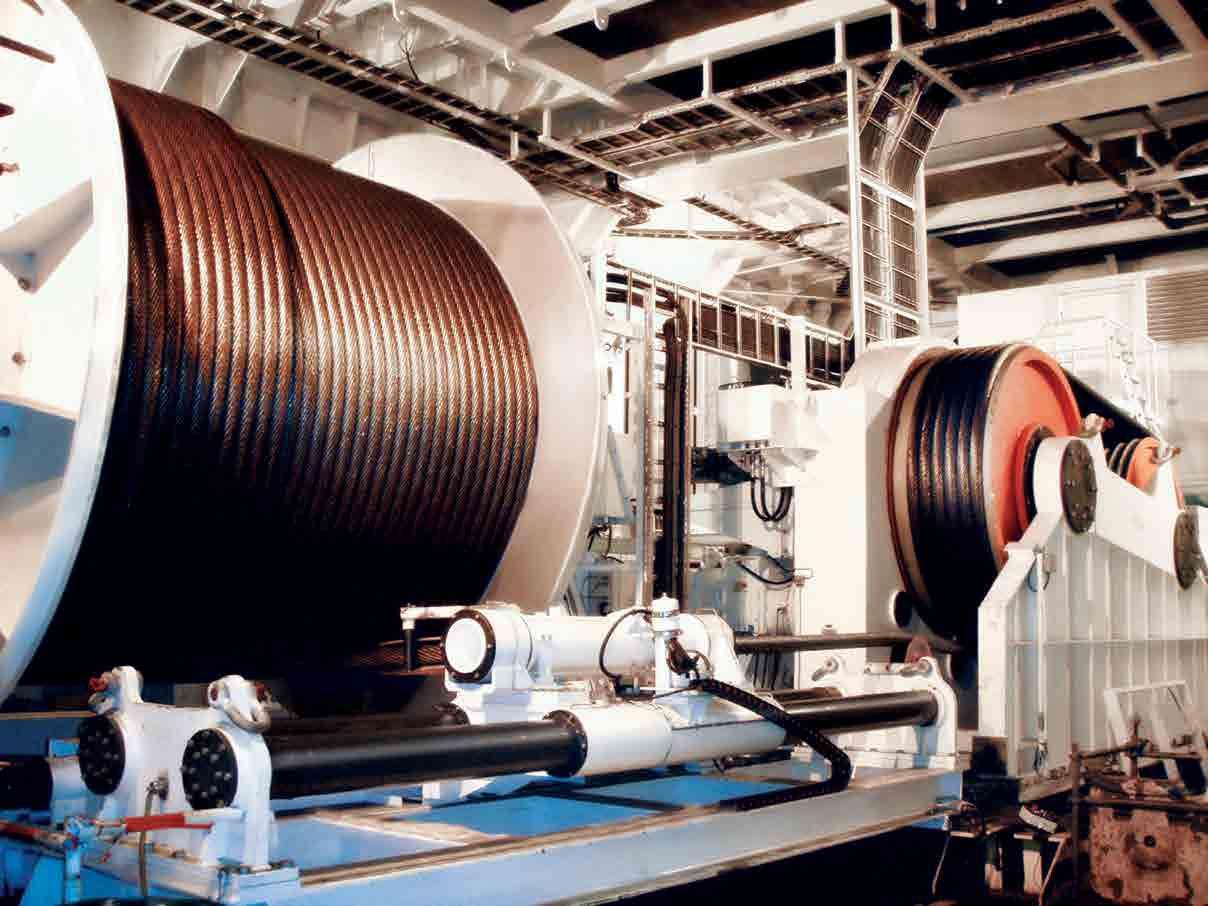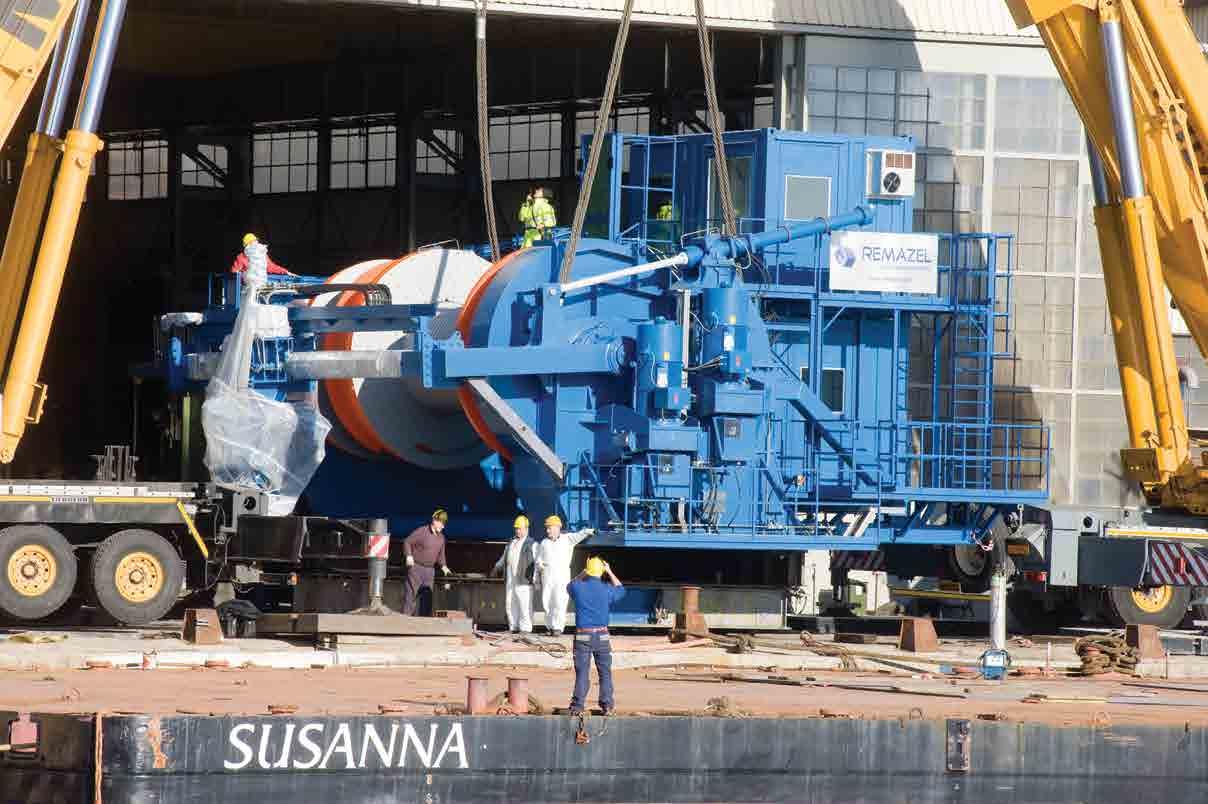
5 minute read
Going offshore Remazel Engineering
GOING OFFSHORE
Italian company Remazel Engineering is active in a range of sectors, with products for the offshore industry a particularly important focus for the future. Industry Europe looks at the latest from the company.







Remazel Engineering was founded in 2010, thanks to the merger of Rema Engineering and Zambetti e Lumina. Zambetti e Lumina had taken its name from that of the two partners who had founded it at the end of the 1960s, while Rema Engineering had been set up at the beginning of the 1980s by Mr Gamba, who had spent the previous fifteen years managing other companies dedicated to producing special equipment and involved in the off-shore sector.
The merger took place because Rema, which was a specialist in offshore engineering and plant subcontracting, as well as carrying out assembly and installation, wanted to further develop its deep water range and, in order to do this, needed the right organisation to qualify and control all the production activities, including expediting and cost control. For this reason, there was the need for a more structured organisation. Zambetti e Lumina was identified as being of particular interest because of its supply and production time management, as well as its quality control capabilities. Through the merger the original objective was achieved.
Remazel Engineering is organised into three divisions: Zambetti e Lumina, Metrio and Rema. Zambetti e Lumina, with its over 50 years of experience in the field, manufactures turbine components, specifically GT burners, GT combustion chambers, GT parts, boiler burners and mechanical components, making its products according to customers’ specifications. One of its notable clients is Ansaldo. Metrio designs and manufactures diverters, exhaust systems, diffusers, guillotines, silencers and expansion joints, as well as multi-louvre, biplane, stack and butterfly dampers. The Metrio division works on the basis of a consolidated know-how, which is then customised to respond to clients’ needs. The main sectors to which it supplies its products are oil and gas, paper,

cement, chemical, petrochemical and metallurgy. The Rema Division has developed its activity in a range of sectors (oil and gas, power transmission, railway), but its core business is machines and systems for oil and gas offshore production. It deals with all the equipment for pipe laying vessels and their anchorage, alongside those for drilling units, lifting vessels and accommodation barges, as well as with complete permanent mooring systems for FPSOs. Design and engineering play a main role in the work of this division, as all machines and systems are fully customised. The division’s main clients are Saipem, Petrofac, SBM, Technip and Engevix/Petrobras.
All facilities and offices are based in the Bergamo area of northern Italy. In 2013 a new assembling unit for large machinery, especially for the offshore sector, was installed, allowing engineering and assembling to be in close direct contact. “Assembling for offshore now takes place at our Stezzano site (that will be kept as an assembly unit), while in Endine Gaiano we have two plants used by Zambetti e Lumina and Metrio, respectively dealing with onshore products and burners for gas turbines,” explains Mr Gamba.
“Geographically we mainly serve European, Brazilian and Asian markets, but the balance changes very rapidly, as the market situation is very dynamic. While direct clients are based in those countries, the actual products sold are deployed all over the world.
“At the moment the balance between the output of Rema’s offshore products and that of the rest of our range dealt with by Zambetti e Lumina and Metrio is about 65 per cent, but we plan to further develop the offshore side of the business in the future, as this is the area offering the greatest scope for growth. The intention would be that of making offshore into our core business.”


New foreign ventures
“In terms of ways of growing, we have been considering several further possibilities. The first is a possible joint venture with a company with quick access to the sea, so as to be able to assemble equipment at the sea front. We have opened branches in China, Brazil and Singapore, mainly for offshore Rema products. While in Singapore this is limited to a commercial and support assistance activity, in the other two countries there is also a production element. In both cases the products offered to these markets are a mixture of locally manufactured products and machinery imported from Italy. As well as allowing us to comply with local political requirements, production in these countries will allow us to get round transport costs and remain competitive in terms of prices.
“Similarly we are thinking of opening a branch for Metrio products in India. Again, partly producing on site is going to help us both in terms of transport cost and with regard to lead times, which when using sea shipment can reach up to four to six weeks. Sometimes being able to deliver quickly is vital, as today the market operates in a last minute context. We are already commercially present in all of the above-mentioned markets.”
The company holds various certifications, namely ISO9001, ISO 14001, ISO3834-2 and OHSAS 18001. Quality is paramount, something proven by the fact that Remazel has 50 members of staff dedicated to engineering, between technicians and actual engineers, and 20 people who take care of project management, expediting and quality control. The company’s suppliers also have to abide by a strict series of checks, so as to contribute to maintaining high product quality. Suppliers have to hold certifications, as being certified according to international standards is a requirement of the offshore sector. “Virtually all of our suppliers are based in Europe, exactly for this reason, and they are one of our greatest resources.
“As well as dedicating resources to engineering and quality control, we also pay a lot of attention to the training and growth of our internal staff. We aim to identify their potential and to help them grow their skills.” n











